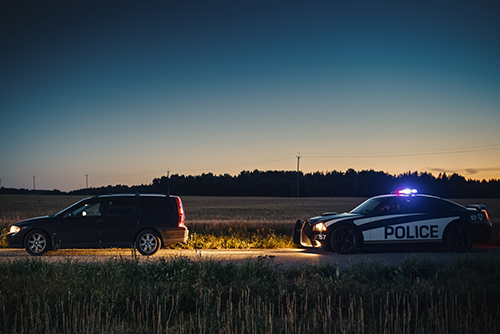Can You Be Charged with DUI When You Were Not Actually Driving?
 By Changfang Xu, Esq.
By Changfang Xu, Esq.
For many people, DUI means "driving" under the influence, just as the name implies. But can a person be charged with DUI when he or she was not actually driving? The answer is yes. Almost all states have statutes providing that it is also unlawful for a person to be in "actual physical control" of a vehicle while under the influence.
So what does actual physical control mean? In State v. Love, 182 Ariz. 324 (Ariz. 1995), the Arizona Supreme Court adopted what is known as a " totality approach " in determining whether a defendant is in actual physical control of the vehicle. It concluded that a person was in actual physical control when, under the totality of the facts, the person "posed a threat to the public by the exercise of present or imminent control" over a vehicle while impaired. Factors to be considered in any given case might include: whether the vehicle was running or the ignition was on; where the key was located; where and in what position the driver was found in the vehicle; whether the person was awake or asleep; if the vehicle's headlights were on; where the vehicle was stopped (in the road or legally parked); whether the driver had voluntarily pulled off the road; time of day and weather conditions; if the heater or air conditioner was on; whether the windows were up or down; and any explanation of the circumstances advanced by the defense.
This is not an all-inclusive list, as the Arizona Supreme Court noted in State v. Zaragoza, 221 Ariz. 49, (Ariz. 2009). A fact finder, be it a jury or a judge, should examine all the available evidence and weigh its credibility in determining whether the defendant actually posed a threat to the public by the exercise of present or imminent control of the vehicle while impaired.
Usually, the question occurs in cases where a citizen has fallen asleep in the car. Sometimes, the car is parked off of the road, but still running. Other times, the car is found in the middle of the road, but the person is in the back seat asleep. Every case is different, which is why the Supreme Court did not adopt a bright-line rule for this question.
Additionally, in some cases, even if a person does not have actual physical control of the vehicle when first seen by the police, the State can still try to establish that he or she had a prohibited BAC within two hours of driving. For example, this can happen where a 911 caller or other witnesses claimed to have seen that person driving, or where there is a surveillance video showing the driver was driving at some point before the vehicle was completely stopped. Under these circumstances, it’s more difficult for the State to prove the case because the State also needs to prove the purported BAC was caused by alcohol consumed before or when the person was driving. Since no one was watching the person continuously until after he or she was contacted by the police, it is unknown whether that person consumed alcohol or not after he no longer had actual physical control of the vehicle, especially when the police found open containers in the vehicle during the investigation.
Whether a person is in actual physical control of a vehicle, and whether the State can still prove their case through other ways even if a person is found to have no actual physical control of the vehicle upon police contact, is a very complicated fact-intensive inquiry and should be determined on a case-by-case basis after consulting a lawyer who is knowledgeable in DUI law. The winning lawyers at The Behan Law Group have extensive training in DUI defense and can help you or a loved one navigate the difficult legal journey through the court system.
If you or a loved one are charged with a crime, contact the lawyers who know how to win. Call The Behan Law Group at 520-220-5047 and let Miss DUI Arizona fight for you, too.





